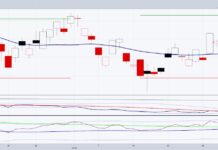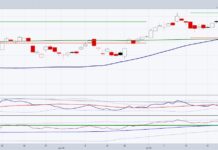 By Max Moore Many of the books that have impacted the way I perceive the world and make decisions have come from the reading lists of others, so I thought I would share my top 10 finance books. Although many of the books and essays on my top ten reading list do not specifically address finance related topics, in my view they address critical aspects of the marketplace.
By Max Moore Many of the books that have impacted the way I perceive the world and make decisions have come from the reading lists of others, so I thought I would share my top 10 finance books. Although many of the books and essays on my top ten reading list do not specifically address finance related topics, in my view they address critical aspects of the marketplace.
Most importantly, they assist in understanding how people react in different situations. Personally, I love books that push my understanding of how the financial markets work, enhance my vision of where they are going, and relate these macro concepts to the micro world that I live in. Without a doubt, each of the items on my top 10 finance books have substantially contributed to my outlook on the world and life. Feel free to share your comments on this list, along with some of your favorite books and short-reads.
In no particular order: My Top 10 Finance Books
Seeking Wisdom – From Darwin to Munger by Peter Bevelin
Although Seeking Wisdom is not explicitly a finance book, it is especially relevant to markets, as it deals with the psychology of the decision making process, common fallacies people make and how it affects their behavior. It’s very easy to switch on a Bloomberg terminal and look at an equity index, futures strip or yield curve and get lost in the numbers while losing sight of the people behind those numbers. While they certainly are numbers, they are more accurately described as a representation of what people are doing and thinking. Seeking Wisdom fills that gap while helping you construct a framework of reasoning to identify with other’s (and your own) misjudgments to improve your thinking. Although I found a cover-to-cover read very enjoyable, the book is also written such that it can be read selectively.
This Time it’s Different – Eight Centuries of Financial Folly by Kenneth Rogoff and Carmen Reinhart
Carmen Reinhart and Kenneth Rogoff are the best economics professors I never had. This Time it’s Different is a long, comprehensive review of the history of public finance in over sixty countries. Between the lines, this book is a textbook on sovereign balance sheet analysis, and a pasquinade of the ‘wisdom’ of many modern economists who consistently fail to study the past.
Many economists, notably Paul Krugman and Joe Stiglitz, always seem to have the prescription for all of our economic ills and spend a great deal of time prognosticating what will happen if those prescriptions aren’t administered. Meanwhile, this book made my top 10 finance books because, simply said, Rogoff and Reinhart offer up what economists are supposed to do: observation and explanation. In doing so, they discover that the writing is on the wall when it comes to analyzing sovereign balance sheets and turn the lights on for all who are willing to read.
Principles by Ray Dalio
Ray Dalio is one of my hedge fund superheroes. Not because of his consistent alpha generation (in spite of an immense and growing portfolio), but because he understands the nature of success. Dalio starts his essay off by explaining the importance of having principles in life, what his principles are, and precisely how they apply to management (specifically at Bridgewater). The essay is a framework for answering three critical questions:
- What do you want?
- What is true?
- What are you going to do about it?
This is a must read for any recent graduate or current university student set on higher achievement in the field of finance; this was a no-brainer for me to include in my top 10 finance books and essays. Note that this essay is also available for free on the Bridgewater website (direct link here).
Thinking, Fast and Slow by Daniel Kahneman
The only way to improve the way you think and make decisions is to zoom out of your own mind and study it. Kahneman breaks down human thought into two groups: fast systems and slow systems. One is based on past experiences, emotions and intuition, while the other is based on facts and rationality (respectively). He explores the pros and cons of both, as well as how they affect our decision making in an economic context. This is a must read for any active investor or trader.
Free to Choose: A Personal Statement by Milton and Rose Freidman
Despite not being alive for any portion of my lifespan where I was interested in economics, Milton Freidman joins the ranks of Rogoff and Reinhart as one of the best economics professors I never had. In Free to Choose: A Personal Statement, Milton and Rose present their views on equality, a laissez-faire marketplace and freedom. The topics covered in this book are more relevant today than ever, ranging from cradle to grave care (i.e. entitlements), inflation, labor unions, and the education system. Furthermore, the book highlights the anatomy of a crisis. Readers will find it hard to look at these issues in the same light after reading this exceptional book.
The Black Swan of Cairo by Nassim Taleb
Taleb has written many things that I would put on this list, but the best starting point for anyone unfamiliar with his writings is a short essay he wrote for the Council on Foreign Relations, titled “The Black Swan of Cairo.” Taleb examines and identifies the Arab Spring as a black swan event, and explains how trying to suppress volatility and uncertainty in society gives rise to these events. This paper has shaped my views on the crisis in Europe; the system is clearly not sustainable in its current form and the efforts of the ECB and European parliament to smooth things out, largely driven by the mentality that an exit from the Euro by any country is unacceptable, mirrors the efforts of the middle eastern governments in their bid to suppress youth movements and change. This is a must read for anyone and is available for free on Taleb’s website (direct link here).
Santayana’s Curse by Sean Corrigan
Sean Corrigan, of Diapason commodities, explores our species’ (pun intended) various attempts at using currencies of different forms, bubbles, low interest rates, and more., Although this book is not widely known or mentioned, it should be. One quote from the book reads, “Those who know no financial history are also doomed to repeat their mistakes.” Needless to say, with central banks around the world in high gear, Santayana’s Curse has a sense of prescience of how the global stimulation war might end.
The Signal and the Noise: Why So Many Predictions Fail-but Some Don’t by Nate Silver
The idea of information being either noise or signal is a favorite of mine. Silver examines what traits some of the world’s best forecasters have in common. Two of the major traits are an above average understanding of statistics and probability, and an acceptance of the possibility of being wrong (which an understanding of probability is a prerequisite for). This is a must read for any investor, trader or businessperson.
The Lessons of History by Will and Ariel Durant
Described by many as a ‘survey of the human experience,’ The Lessons of History frames our species’ history (in a very concise 102 pages) in the context of several different topics including:
- The Earth
- Biology
- Race
- Character
- Morals
- Religion
- Economics
- Socialism
- War
- Growth and Decay
The summation of these topics leads to the question, is progress real? Several different definitions of progress are explored and are followed by several different answers. One such answer suggests that all technological advances are simply new means of achieving old ends.
The Five Dysfunctions of a Team by Patrick Lencioni
Throughout the earlier part of my university career, I had the displeasure of working with many dysfunctional groups. Fortunately, group projects became enjoyable and productive towards the back end of my time in school. For one project in particular, I was lucky enough to work with two phenomenal people (and an equally phenomenal coach) in a business case competition that set the bar for the type of people I’d like to work with for the rest of my life.
Thousands of books about teamwork have been written, and I could sum them all up concisely as ‘instruction manuals’. They all approach successful teamwork from a “make sure you do this” approach. The Five Dysfunctions of a Team takes a negative approach and examines the commonalities of teams that don’t succeed and boils it down to five things that inhibit a group of otherwise capable people from achieving something bigger than they could on their own. The five dysfunctions are:
- Absence of trust
- Fear of conflict
- Inattention to results
- Lack of commitment
- Avoidance of accountability
Again, this book is not directly related to finance, but I think you will find some strong themes that relate to successful trading desks, research/banking teams, and pretty much any successful business.
I hope you find some good value in my top 10 finance books and essays. Feel free share your comments and favorites below. Thanks for reading.
Twitter: @maxmoore306 and @seeitmarket








